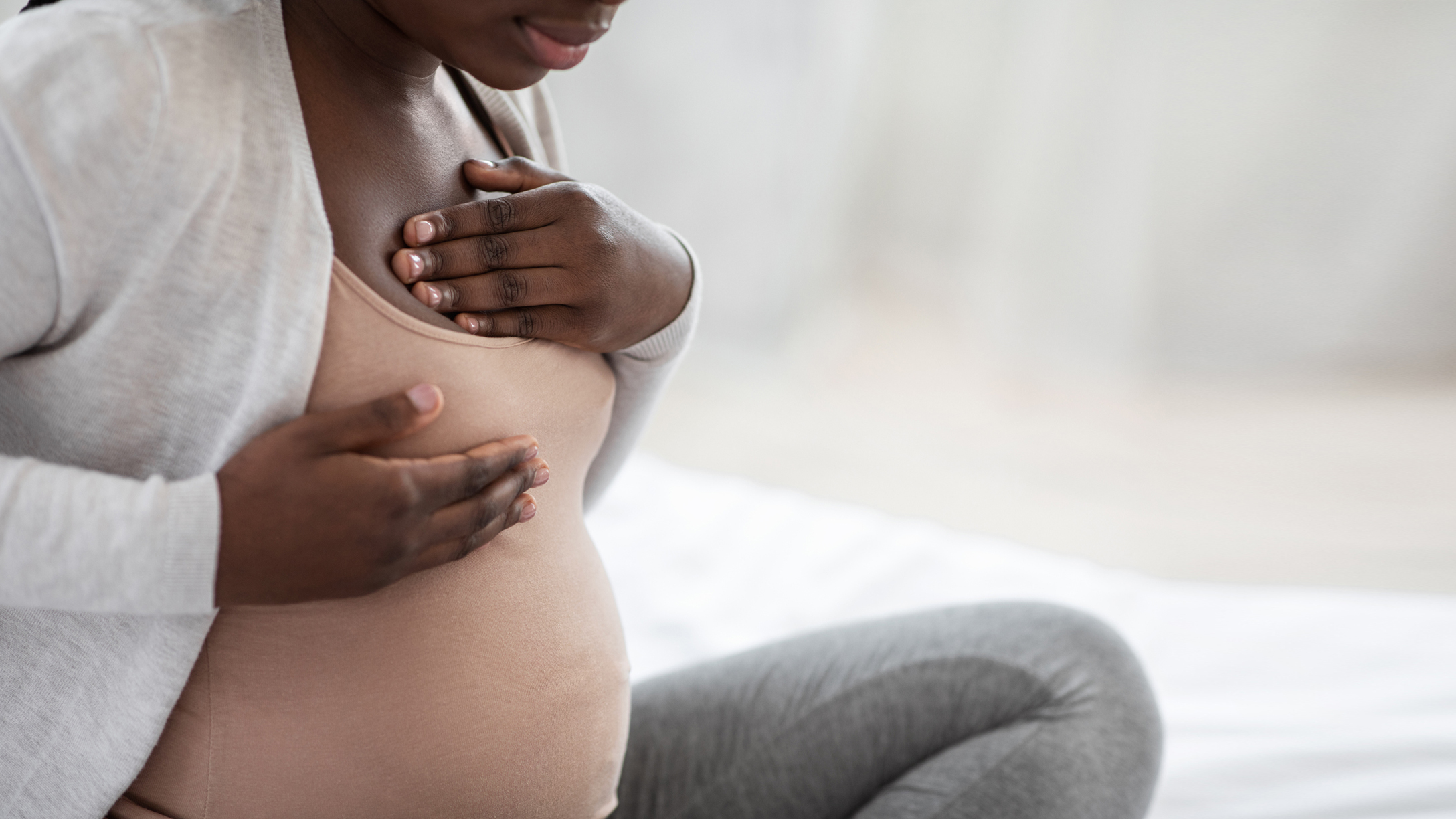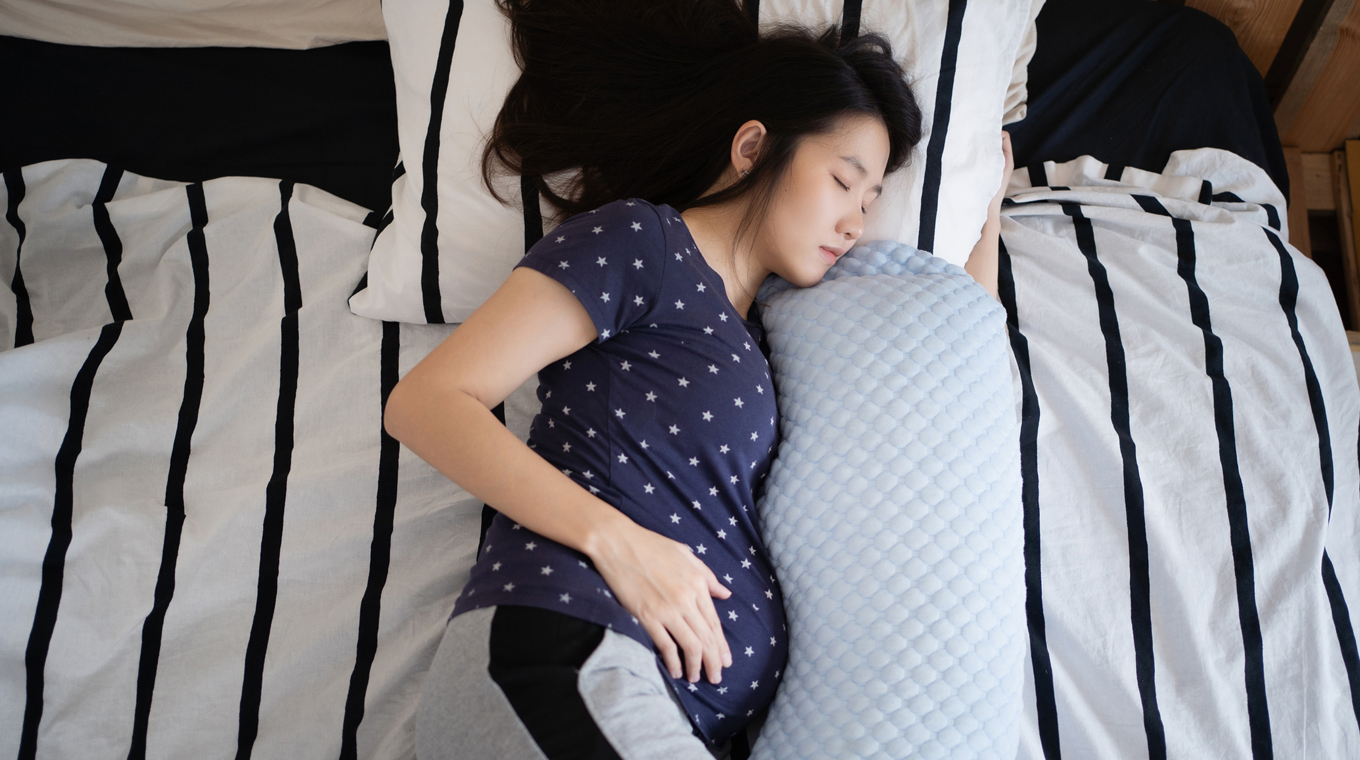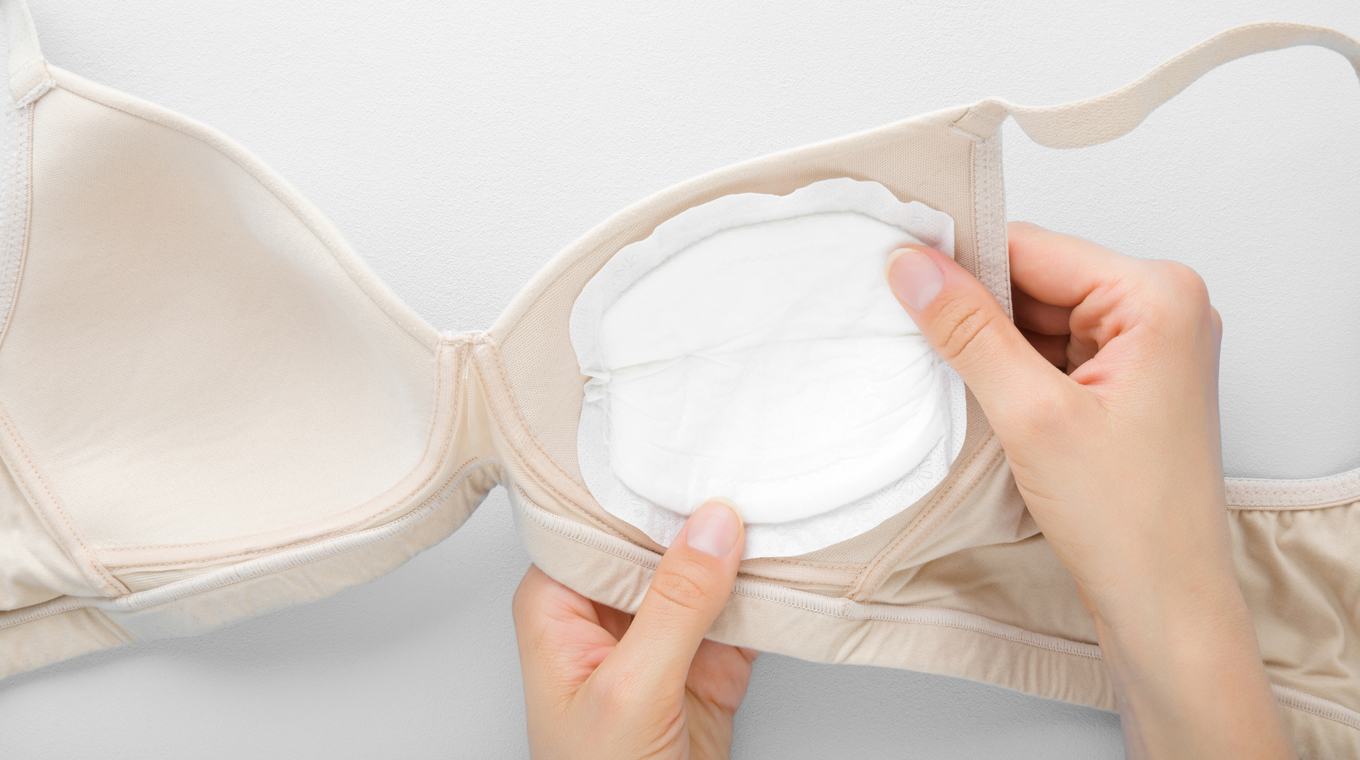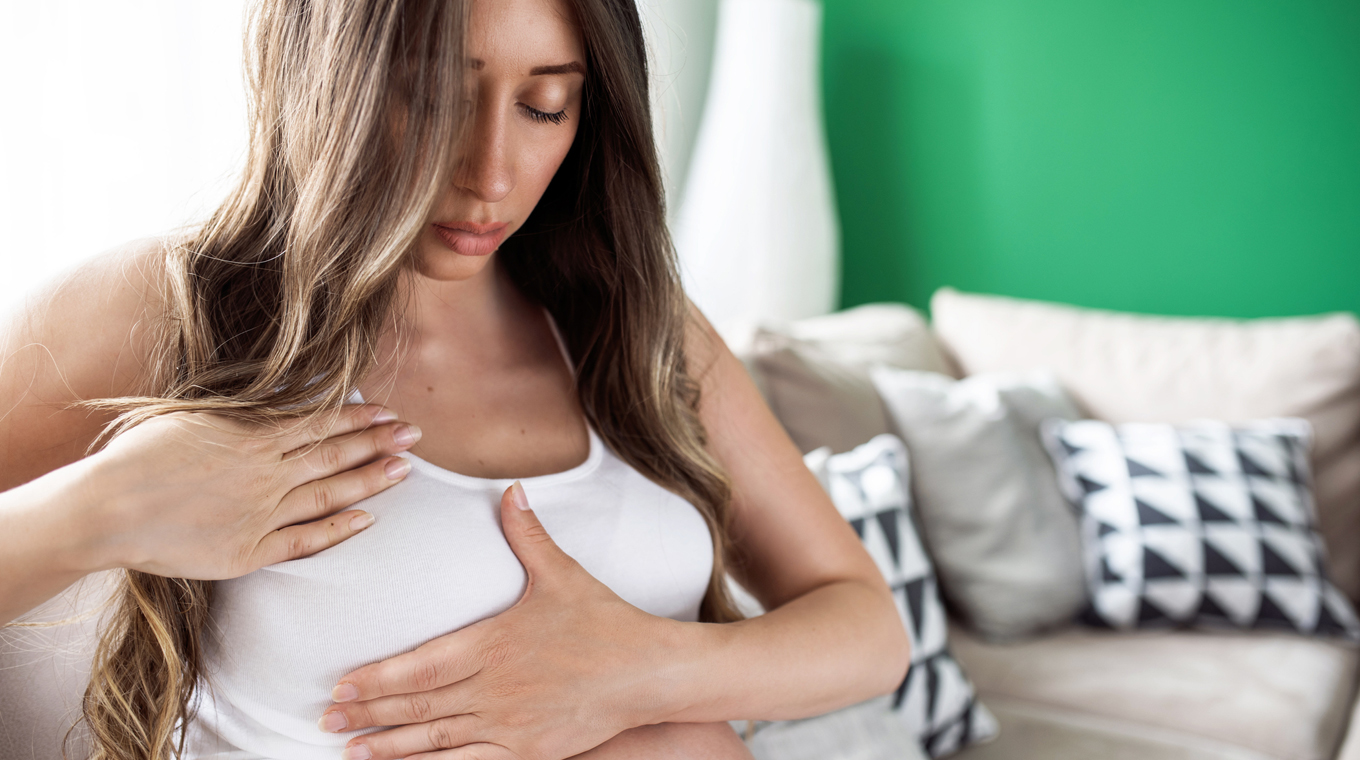
In this article
While the internet may make pregnancy look like a beautiful, perfectly curated journey filled with glowing photo shoots and not a stretch mark or breast milk stain in sight, the reality of growing humans can be a lot more … well, messy than we may have expected going in.
From pregnancy constipation and incontinence, to weight gain and fatigue, pregnancy symptoms can be both exhausting and difficult to navigate. One particularly common symptom that can surprise (and often embarrass) moms-to-be is leaky breasts.
If you have (or currently are) experiencing leaky breasts while pregnant, don’t worry. We’re here to break down why this is happening, what you can do about it, and when you should see a doctor.
What causes breasts to leak during pregnancy?

If you’ve ever looked down and seen a wet spot on your chest that wasn’t caused by a clumsy moment with a bottle of water, you’ve likely experienced breast leakage. The truth is, whether you’re planning on breastfeeding or not, your body doesn’t really care. It knows a baby is on its way and it will need nourishment. Enter: colostrum.
What is colostrum?
Colostrum, according to the American Pregnancy Association, is a “thick, sticky, concentrated milk [that] is usually yellow, clear or white, although it could be other colors as well. It is made up of immune factors, protein, sugar, and fats.”
Often referred to as “liquid gold” for its color and benefits, colostrum is extremely high in antibodies and packed with important nutrients for your little one. Colostrum begins to produce within your body during your first trimester, but you wouldn’t know it. That’s because most women don’t leak colostrum from their nipples until the third trimester (and some don’t leak at all).
Why do breasts leak during pregnancy?
As with many things, you can blame hormones for this one. Leaky breasts during pregnancy are caused by a hormone called prolactin. Prolactin is responsible for milk production (aka lactation). Incredibly high levels of estrogen and progesterone levels during pregnancy keep prolactin levels in check (and thereby prevent your body from making breast milk before the baby is born). But if you make slightly more prolactin than estrogen and progesterone, you can leak colostrum.
In addition, any rubbing or stimulation of your nipples (such as from your bra, brushing up against something, taking a shower, or during sex) can trigger you to leak.
For mom Liz F., moving around in bed at night was often the cause. “I was truthfully always afraid of wetting the bed while pregnant,” she told Mom.com. “Thankfully, that never happened. But I did wake up with a wet bed and a soaked shirt plenty of times due to leaky breast milk!”
How to stop breast milk from leaking

Unfortunately, there is no way to stop your breasts from leaking if you are pregnant or nursing, but you can prevent it from ruining every top you own. By using a little tissue or stocking up on nursing pads, you can catch the small amount of colostrum or milk before it leaks through to your shirt.
When can you expect to stop leaking?
Naturally, leaky breasts don’t stop once the baby’s born. If you are not breastfeeding, it will usually take 7-10 days for you to stop leaking colostrum or breast milk.
If you do breastfeed, it can take a lot longer. Many moms continue to leak breast milk for up to three months after weaning. And, in more rare cases, “some women continue to produce milk up to 2 years after they have stopped breastfeeding,” according to the National Health Service UK.
Susan W., a mom of three from New York, looks back on her early parenting days with a laugh. A vocal proponent of extended breastfeeding, she often experienced leakage during and after her pregnancies. She told Mom.com about a particularly memorable day she’ll never forget.
“I had left the baby home with my parents and went to church alone while my husband was at work. Sitting in the pew, I heard a baby cry. That’s all I needed,” she recalled. “My body registered a baby in distress and suddenly I was leaking! As a new mom, I was embarrassed and taken by surprise. I sat there with my arms folded and then left a little early to avoid shaking the priest’s hand at the end. From that day on, I never left the house without nipple pads until I was long done breastfeeding!”
Leaky breasts: When to call your doctor

If you feel the amount of leakage you are experiencing has become excessive to the point where adding tissue or pads is not helping, or if the discharge is bloody, you should speak to your doctor.
Other than that, remember that leaky breasts are a perfectly normal symptom of pregnancy and just another sign that things are moving along as they should. You got this, mama.




